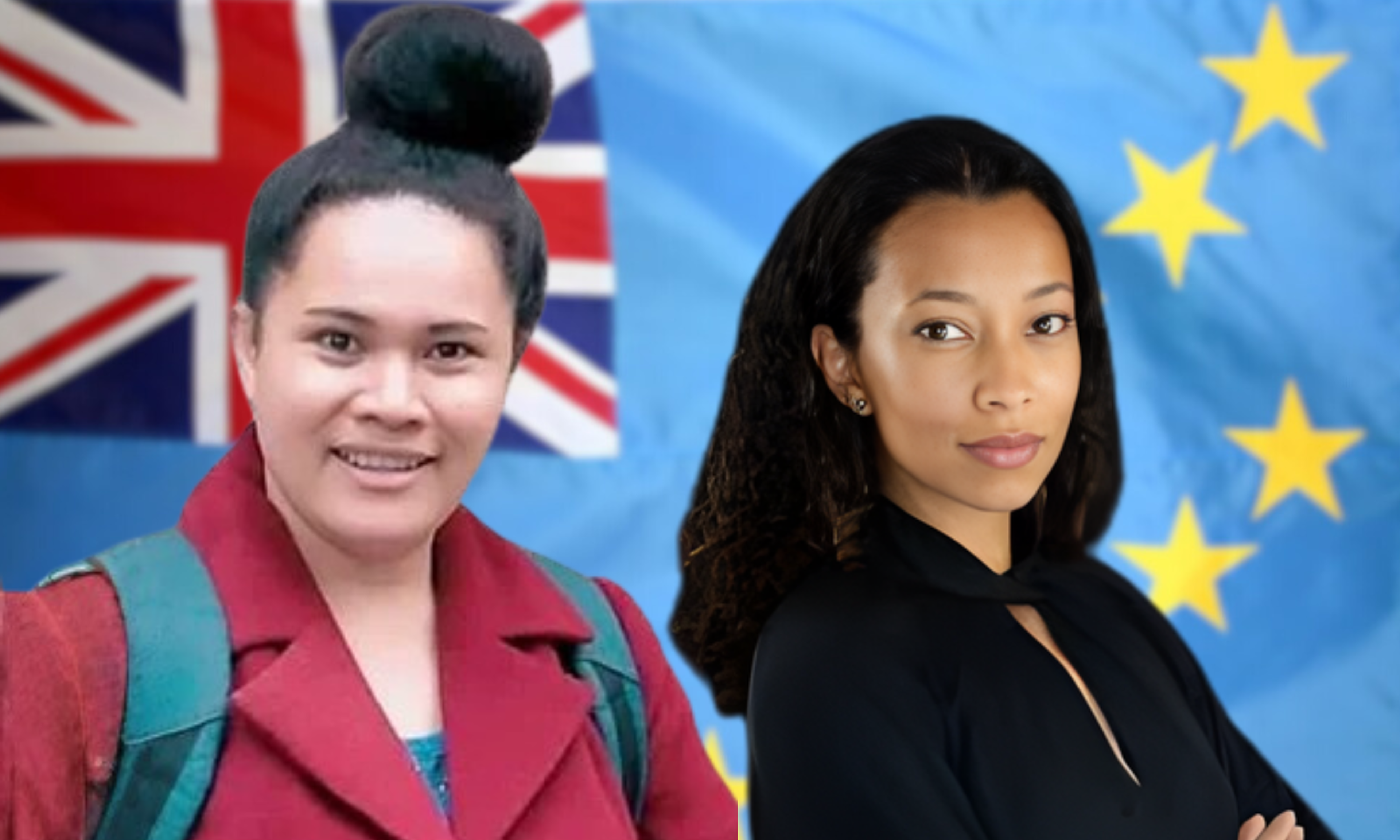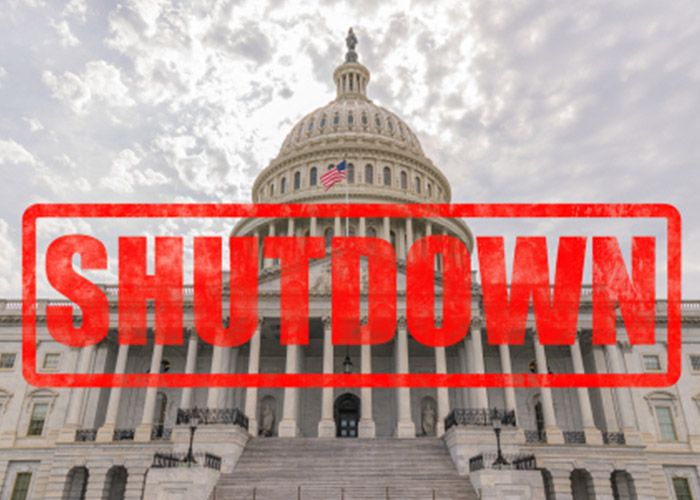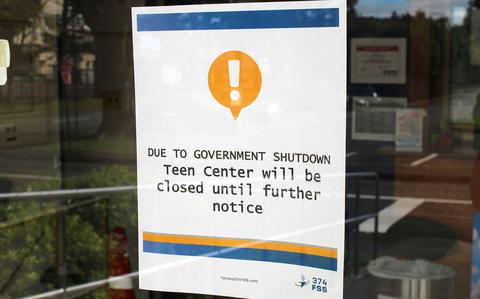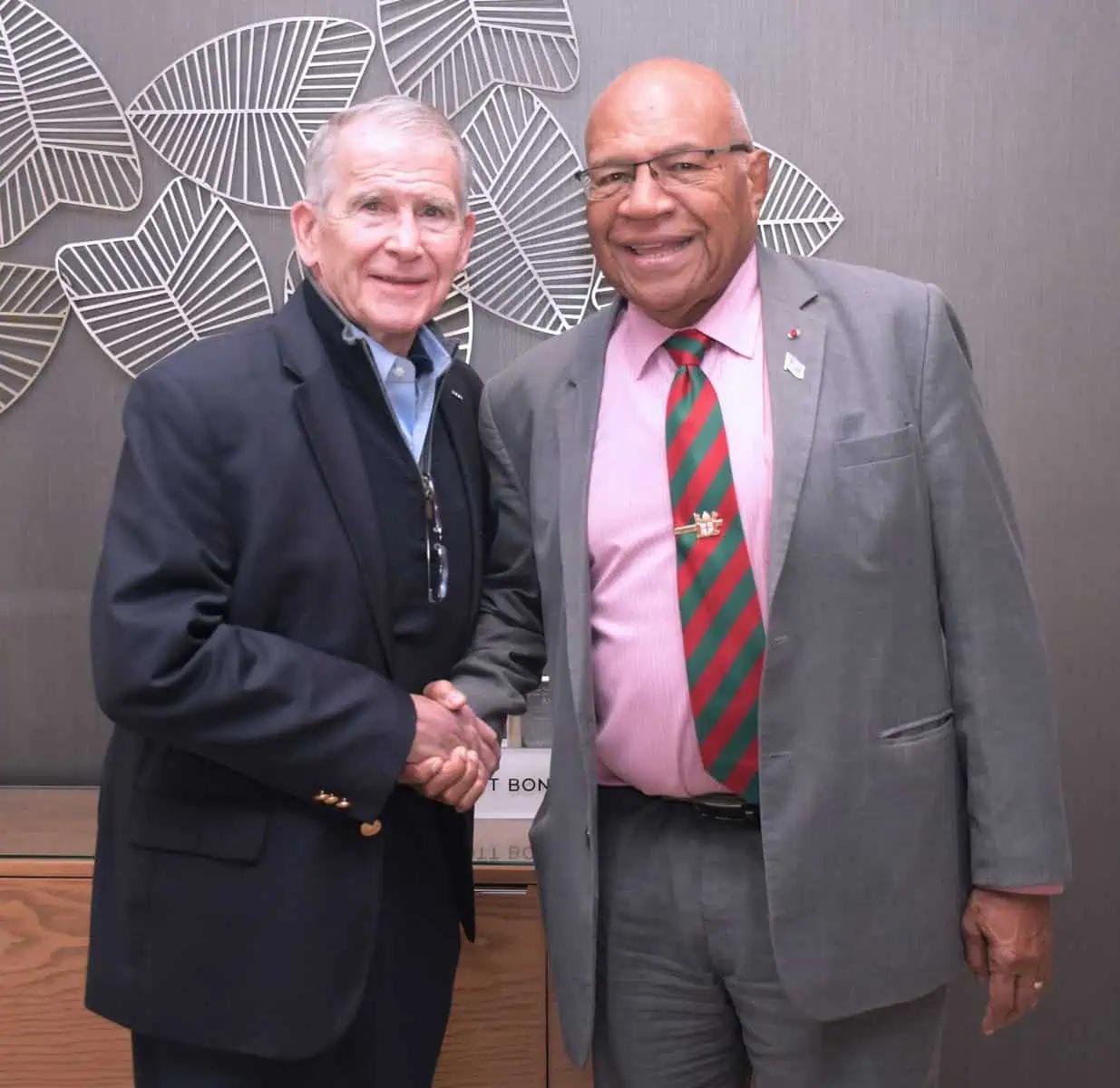

From left, President of the Marshall Islands Hilda Heine, former President of the Federated States of Micronesia David Panuelo, US President Donald Trump, and former President of Palau Tommy E. Remengesau in Washington. Photo: Faceook/ US Embassy Kolonia
Faceook/US Embassy Kolonia/File
US govt shutdown sends shockwaves through the Pacific and opens door for change
As Washington stalls, Pacific island nations face both risk and choice as tens of thousands of federal workers are sent home without pay.




Realm relations in focus as Tokelau-NZ marks 100-year history



‘One of our most trusted leaders’: Tributes flow for a beloved rangatira


Realm relations in focus as Tokelau-NZ marks 100-year history

When the United States government went into shutdown last month, the impact didn’t stay inside the US.
Far across the Pacific Ocean, island nations and territories have been feeling the disruption and are starting to ask: Who do we actually depend on?
The shutdown in Washington caused many federal agencies to stop or reduce operations. The shutdown was caused by a political standoff in Congress over the federal budget, as lawmakers failed to pass spending bills in time.
US media reports state that about 750,000 federal employees have been sent home without pay, with 700,000 or more being “excepted” employees, meaning they are continuing to work but without guaranteed income during the shutdown.
The shutdown comes ahead of the United States state legislative elections on Tuesday (Wednesday NZ time). Today, Democrats hold 43 of the 185 House seats, or 23 per cent, in the states that voted three times for Trump three times. But Republicans hold 39 of the 185 House seats, or 21 per cent, in the states that voted against the president three times.
Some government agencies have reported that over 4000 workers have already received layoff or reduction-in-force notices. In US territories in the Pacific like Guam, American Sāmoa, and the Commonwealth of the Northern Marianas, the shock is immediate.

The US government has shut down after senators failed to reach a funding deal, marking the first closure since 2018. Photo/APP-APSM
According to the US Federal Register, a total of 49,000 is estimated to be affected (out of roughly 1,007,701 workers across these US territories in the Pacific). This amounts to 4.9 per cent of the territorial workforce.
Government workers are unsure when they’ll be paid as federal benefit programmes come under pressure.
While the majority of affected federal workers are on the US mainland, the territories in the Pacific are being hit with a non-trivial share, experts say. And it's not just about numbers, but about local economic and service-impact vulnerability.
In the wider Pacific, countries with special compacts with the US, like the Marshall Islands, Federated States of Micronesia (FSM), and Palau, were told their guaranteed funding was safe - for now.
Reactions to the shutdown from the Pacific have been mixed, with one commentator saying that: “The real challenge is that the United States has made a very strong pitch about security, defence and stability in the region … but when it comes to policy, this kind of shutdown undermines its reliability.”
A local correspondent in the Northern Marianas described the situation as a “double whammy”: a federal shutdown and local budget cuts, showing how sensitive small jurisdictions are to Washington’s decisions.
Pacific leaders also shared their views. Hilda Heine, President of the Marshall Islands, has warned that, “At the moment [the US-Marshall Islands relationship] is gradually being destroyed by party politics in the US Congress.”
FSM President Wesley Simina says: “The path to this day has been longer than expected and a challenging road that raised concerns [on the US funding renewal]."
The FSM celebrated its 39th anniversary of independence on the weekend, and US Secretary of State Marco Rubio congratulated the country while highlighting the strong partnership between the two nations, built under the Compact of Free Association (COFA).
In a statement, Rubio says the relationship reflects a shared commitment to a free, open, resilient, and prosperous Pacific region, with decades of cooperation on security and economic development.

There have been reports of disruptions at US military bases in Indo-Pacific due to the government shutdown. Photo/SSBCN
What’s at stake
For Pacific island communities, this isn’t just a distant finance story. Some of the consequences include:
Projects for health, water, and education may face delays or uncertainty if funding from US agencies is paused.
The perception of the US as a stable, reliable partner may shift, with implications for long-term trust and planning.
For regional governments, this could be a catalyst - either for vulnerability or for asserting more control and local leadership.
What many reports don’t emphasise enough is how this moment might be a turning point for Pacific nations.
Instead of simply suffering from outside disruptions, they may begin making more active choices.
These include:
Choosing partners, not just accepting them. If the US can’t guarantee support indefinitely, Pacific states may lean more on neighbours like New Zealand and Australia, or forge new alliances.
Stepping up locally. With external aid uncertain, Pacific leaders can build homegrown solutions rather than wait for assistance.
Resetting relationships. The shutdown risks giving other powers like China space to increase their influence. But Pacific nations might use the moment to ask new questions about what they want those relationships to look like.
The US government shutdown might look like an internal American political drama, but for the Pacific region, it matters deeply. It touches who shows up, who we can rely on, and who leads.
This is about funding, shifting power, agency, and change, and the Pacific is right in the middle of it.

Fijian Prime Minister Sitiveni Rabuka, right, met with former US National Security Adviser, Oliver North, ahead of the National Presidential Prayer Breakfast in Washington, DC, earlier this year. Photo/Facebook/Fiji govt
US aid freeze
Fiji's Prime Minister Sitiveni Rabuka says he discussed issues of common interest not only for Fiji but also the wider Pacific region when he visited Washington earlier this year.
Rabuka pressed the Pacific Islands' concerns following the US aid freeze. In January 2025, President Trump signed an executive order freezing nearly all new US foreign aid for 90 days, under an “America First” banner.
The freeze meant programmes funded by agencies like USAID (United States Agency for International Development), which totalled US$60 billion (NZ$104.8b), including health, education, infrastructure, and community development projects around the world, were halted or delayed while the government reviewed whether it was “aligned with American interests”.
In the Pacific, the policy caused concern as organisations reported that US‑funded work in countries like Papua New Guinea and the Solomon Islands was suspended or put in limbo.
Legal challenges followed, with a federal judge ruling in March 2025 that the administration had overstepped its authority by withholding congressionally appropriated foreign aid.
In September 2025, reports surfaced that Trump had moved to cut US$4.9 b (NZ$8.56b) of foreign aid that Congress had already allocated through a “pocket rescission” tactic.